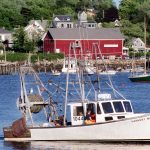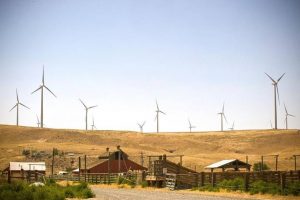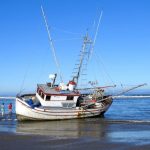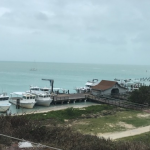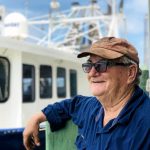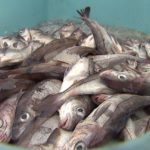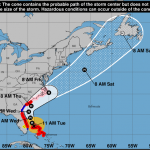Daily Archives: February 7, 2016
Latest Green Idea: Pouring Millions of Tons of Bubble Mix into the Sea
 A new study suggests that large ocean going ships could help reduce global warming, by pouring surfactants into their wake, to extend the life of the shiny bubbles churned up by ship’s propellers. According to the Huffington Post; … Crook and her co-authors maintain that their climate model shows the scheme could bring a 0.5-degree Celsius reduction in the Earth’s average surface temperature by 2069, helping to offset the 2-degree warming expected by then. Pouring enough surfactant into the sea, to allow bubbles to survive for 10 days in open water, might kill a lot of sea life. Surfactants are often used in cleaning products, such as dish washing liquid, because they are very effective at breaking up organic matter. Read the rest here 17:06
A new study suggests that large ocean going ships could help reduce global warming, by pouring surfactants into their wake, to extend the life of the shiny bubbles churned up by ship’s propellers. According to the Huffington Post; … Crook and her co-authors maintain that their climate model shows the scheme could bring a 0.5-degree Celsius reduction in the Earth’s average surface temperature by 2069, helping to offset the 2-degree warming expected by then. Pouring enough surfactant into the sea, to allow bubbles to survive for 10 days in open water, might kill a lot of sea life. Surfactants are often used in cleaning products, such as dish washing liquid, because they are very effective at breaking up organic matter. Read the rest here 17:06
Farmed Atlantic Salmon make Seafood Watch’s ‘avoid’ list
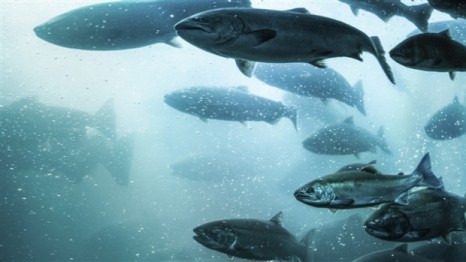 Environmentalists and an aquaculture company disagree about the findings of a new report from the United States that advises consumers to avoid some farm-raised Atlantic Salmon. “It’s not surprising, it’s clear that we need to have improvements in Canada. If we want to even be nearly equivalent to some of the better practices that are happening in Norway and Scotland,” said Susanna Fuller, a Marine Conservation Coordinator with the Ecology Action Centre. Read the rest here 16:34
Environmentalists and an aquaculture company disagree about the findings of a new report from the United States that advises consumers to avoid some farm-raised Atlantic Salmon. “It’s not surprising, it’s clear that we need to have improvements in Canada. If we want to even be nearly equivalent to some of the better practices that are happening in Norway and Scotland,” said Susanna Fuller, a Marine Conservation Coordinator with the Ecology Action Centre. Read the rest here 16:34
Pros and Cons Of Internet Onboard Ships: A Sailor’s Perspective
 Beginning your career in the new millennium has its own plusses and minuses. One cannot take away the fact that seafaring was an entirely different ballgame ‘back in the days’. While one had to endure more hardships and longer tenures, life was a tad better off when it came to port stays, paperwork, commercial pressures, traffic density etc. Pros 1. Keeping abreast with current affairs and sporting events. CONS: 1. Onboard Social Life,,, Although this is about merchant mariners, Fishermen also have access to the internet. Interesting. Read the rest here. 15:38
Beginning your career in the new millennium has its own plusses and minuses. One cannot take away the fact that seafaring was an entirely different ballgame ‘back in the days’. While one had to endure more hardships and longer tenures, life was a tad better off when it came to port stays, paperwork, commercial pressures, traffic density etc. Pros 1. Keeping abreast with current affairs and sporting events. CONS: 1. Onboard Social Life,,, Although this is about merchant mariners, Fishermen also have access to the internet. Interesting. Read the rest here. 15:38
Lake Okeechobee – More bad water? We hope not
 Here we go again. Large amounts of polluted water from Lake Okeechobee are beginning to flow into the Caloosahatchee. This is harmful fresh water and is the result of a need to drop the lake level because of unprecedented rain amounts. It is water filled with the wrong kind of nutrients and phosphorous. It can create suffocating algae blooms, killing sea grass and marine life. It can impact tourism. No one wants to fish, swim or look at ugly water. Read the rest here 14:24
Here we go again. Large amounts of polluted water from Lake Okeechobee are beginning to flow into the Caloosahatchee. This is harmful fresh water and is the result of a need to drop the lake level because of unprecedented rain amounts. It is water filled with the wrong kind of nutrients and phosphorous. It can create suffocating algae blooms, killing sea grass and marine life. It can impact tourism. No one wants to fish, swim or look at ugly water. Read the rest here 14:24
Water managers race to drain rising Lake Okeechobee risking wide spread damage to estuaries
 The Corps could begin sending as much as 4.9 billion gallons of water — about 7,400 Olympic swimming pools — daily into the St. Lucie river on the east coast. Even more would be released into the larger Caloosahatchee on the west coast. Such massive dumps in the past have caused widespread damage to the estuaries at the mouths of the rivers, where seagrass beds and oysters can’t tolerate such high amounts of freshwater. Already, a brown plume has spread off the coast of Sanibel. The last time so much water was released, in 2013 and following a 1998 El Niño, fish kills and dead sea life lasted for months, infuriating local communities. Read the rest here 11:19
The Corps could begin sending as much as 4.9 billion gallons of water — about 7,400 Olympic swimming pools — daily into the St. Lucie river on the east coast. Even more would be released into the larger Caloosahatchee on the west coast. Such massive dumps in the past have caused widespread damage to the estuaries at the mouths of the rivers, where seagrass beds and oysters can’t tolerate such high amounts of freshwater. Already, a brown plume has spread off the coast of Sanibel. The last time so much water was released, in 2013 and following a 1998 El Niño, fish kills and dead sea life lasted for months, infuriating local communities. Read the rest here 11:19
Lowenthal introduces Albatross and Petrel Conservation Act to protect imperiled seabirds
 Congressman Alan Lowenthal (CA-47) today introduced new legislation that will protect imperiled seabirds from international fishing threats and increase ongoing conservation efforts in the United States and abroad. The Albatross and Petrel Conservation Act would implement the international Agreement on the Conservation of Albatrosses and Petrels (ACAP), a conservation agreement that has been signed by thirteen member countries since 2001. President George W. Bush first asked the U.S. Senate to ratify the agreement in 2008, and while President Barack Obama has listed it as a priority, the Senate has yet to take action. Read the rest here 11:00
Congressman Alan Lowenthal (CA-47) today introduced new legislation that will protect imperiled seabirds from international fishing threats and increase ongoing conservation efforts in the United States and abroad. The Albatross and Petrel Conservation Act would implement the international Agreement on the Conservation of Albatrosses and Petrels (ACAP), a conservation agreement that has been signed by thirteen member countries since 2001. President George W. Bush first asked the U.S. Senate to ratify the agreement in 2008, and while President Barack Obama has listed it as a priority, the Senate has yet to take action. Read the rest here 11:00
Red-snapper limits help Louisiana’s restaurants and economy: Brett Veerhusen and Haley Bittermann
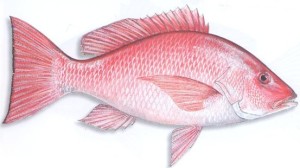 Louisiana catches about 1 billion pounds of seafood every year for commercial sale, and with the demand for local seafood at an all-time high, we rely on our nation’s fishery management process to ensure sustainable fisheries. Louisiana restaurants rely on locally sourced, sustainably managed seafood. Close to 70 percent of seafood harvested off the Gulf Coast is landed in Louisiana. Chances are your delicious plate of red snapper is from one of our many locally run Gulf fisheries. Read the rest here 10:13
Louisiana catches about 1 billion pounds of seafood every year for commercial sale, and with the demand for local seafood at an all-time high, we rely on our nation’s fishery management process to ensure sustainable fisheries. Louisiana restaurants rely on locally sourced, sustainably managed seafood. Close to 70 percent of seafood harvested off the Gulf Coast is landed in Louisiana. Chances are your delicious plate of red snapper is from one of our many locally run Gulf fisheries. Read the rest here 10:13
Coast Guardsmen find film an apt tribute
 “We all live or we all die.” That’s Boatswain Mate Kelly Zimmerman’s favorite line from the movie “The Finest Hours” which he saw at a special showing in Boston with other members of Coast Guard Station Chatham last week. In the film those words are said by actor Chris Pine, who Zimmerman got a chance to meet when the star shadowed him and other Coasties for character development during filming. Those words were first uttered by Coxswain Bernie Webber, whom Pine portrays in the movie. Webber took three other Coast Guardsmen out during a nor’easter on Feb. 18, 1952 to rescue 33 men on the stern of the tanker Pendleton. With waves more than 60-feet high and the deadly Chatham Bar to cross many called the attempt a suicide mission. Read the rest here 09:02
“We all live or we all die.” That’s Boatswain Mate Kelly Zimmerman’s favorite line from the movie “The Finest Hours” which he saw at a special showing in Boston with other members of Coast Guard Station Chatham last week. In the film those words are said by actor Chris Pine, who Zimmerman got a chance to meet when the star shadowed him and other Coasties for character development during filming. Those words were first uttered by Coxswain Bernie Webber, whom Pine portrays in the movie. Webber took three other Coast Guardsmen out during a nor’easter on Feb. 18, 1952 to rescue 33 men on the stern of the tanker Pendleton. With waves more than 60-feet high and the deadly Chatham Bar to cross many called the attempt a suicide mission. Read the rest here 09:02
Fish Grab: Push and pull, as fishermen debate proposed tourist fishery
 The notion that tourists should be able to drop a fishing line in the ocean all summer long has ignited a fierce debate on CBC Radio’s The Broadcast. Mussel Bed Boat Tours in Lewisporte is lobbying the federal government on behalf of 40 tour boat operators. “We proposed that we would start the season the first of June and end it at the end of September or the first of October, and that we would retain two fish per tourist per trip,” said Mussel Bed’s owner Graham Wood. “That doesn’t make any sense to me, right,” said Bay de Verde fisherman Tony Doyle, who’s against the proposal and worried about competition. “They can catch fish on his vessel when he’s out, but I’ll still be sitting on the end of the wharf and waiting for a three week fishery.” Read the rest here 07:53
The notion that tourists should be able to drop a fishing line in the ocean all summer long has ignited a fierce debate on CBC Radio’s The Broadcast. Mussel Bed Boat Tours in Lewisporte is lobbying the federal government on behalf of 40 tour boat operators. “We proposed that we would start the season the first of June and end it at the end of September or the first of October, and that we would retain two fish per tourist per trip,” said Mussel Bed’s owner Graham Wood. “That doesn’t make any sense to me, right,” said Bay de Verde fisherman Tony Doyle, who’s against the proposal and worried about competition. “They can catch fish on his vessel when he’s out, but I’ll still be sitting on the end of the wharf and waiting for a three week fishery.” Read the rest here 07:53



































